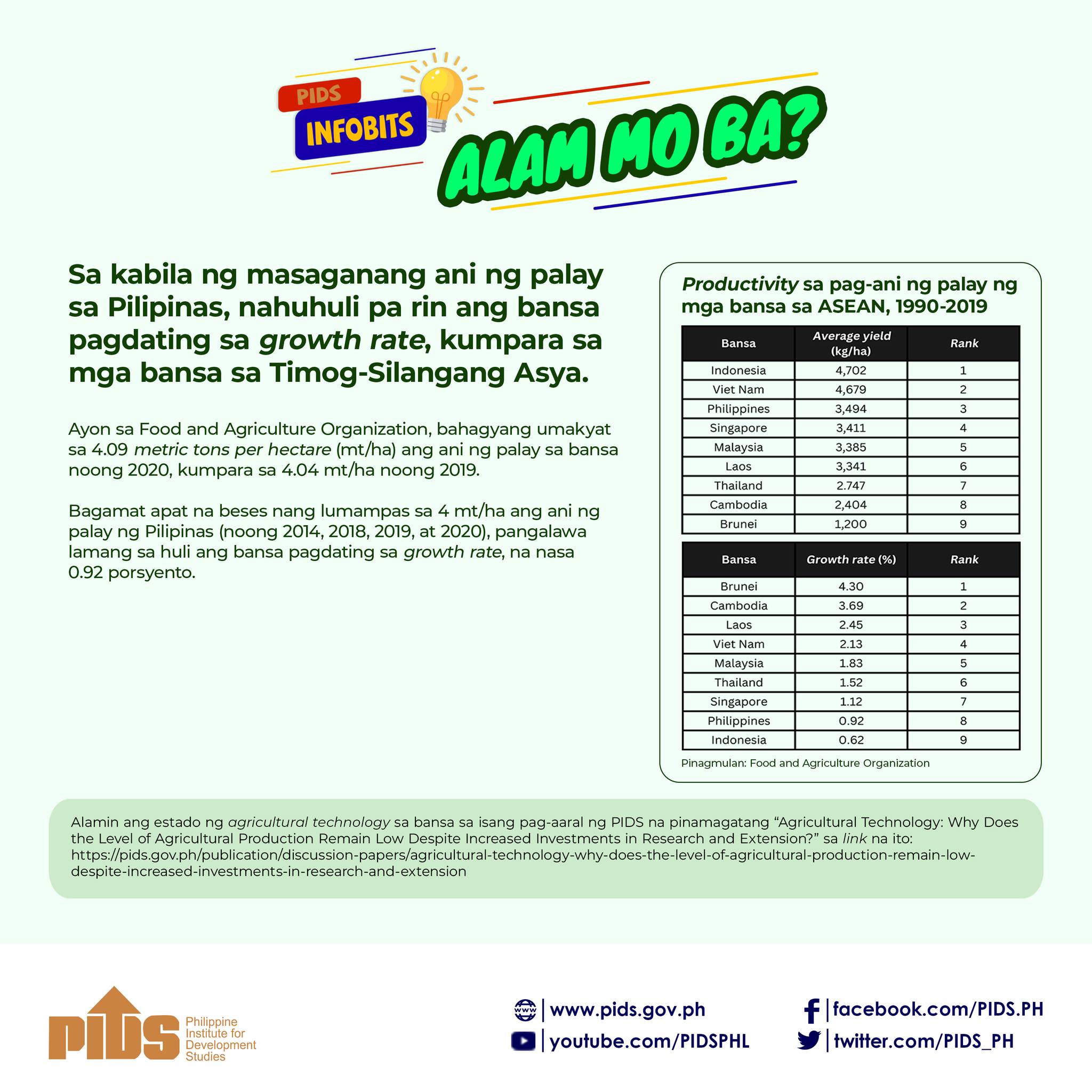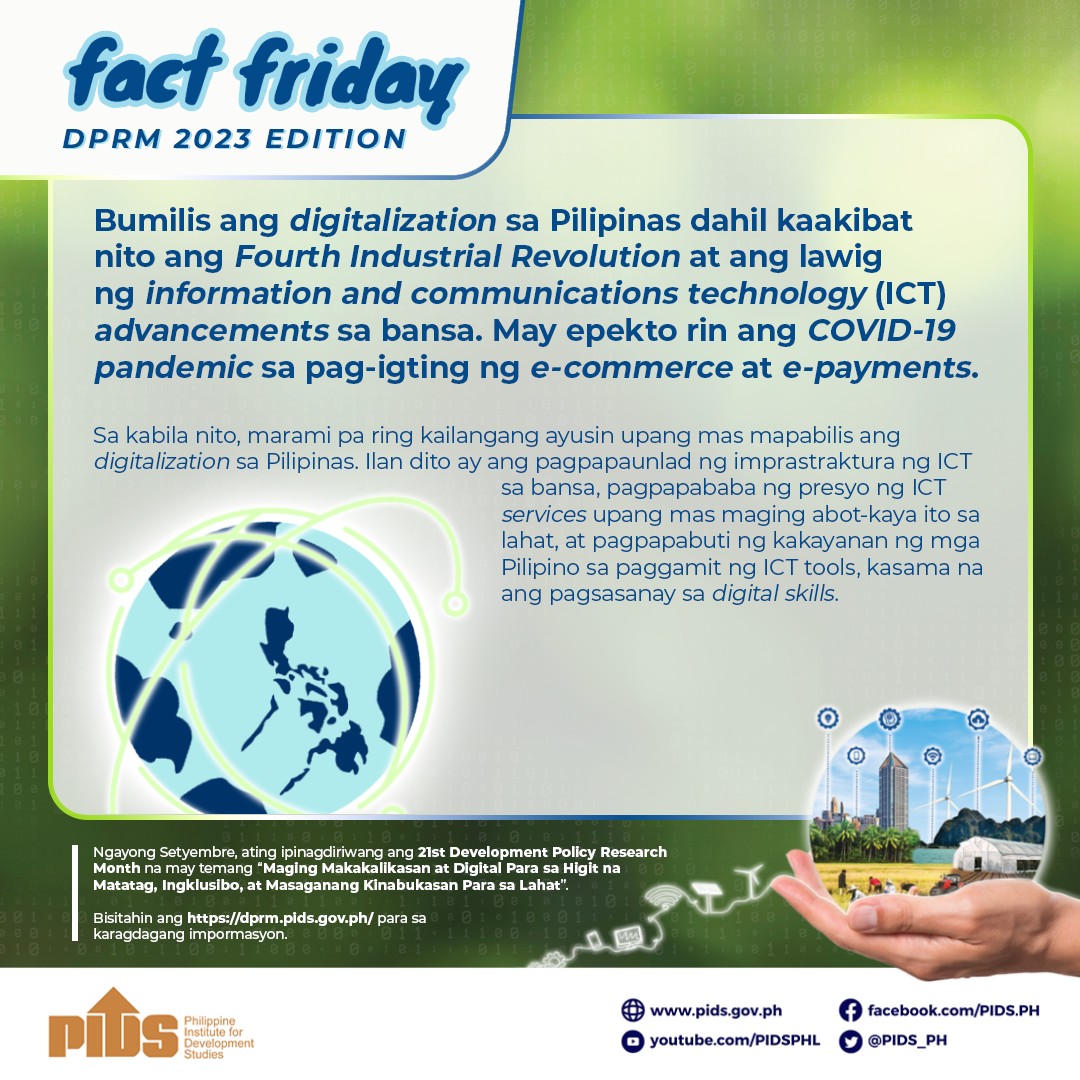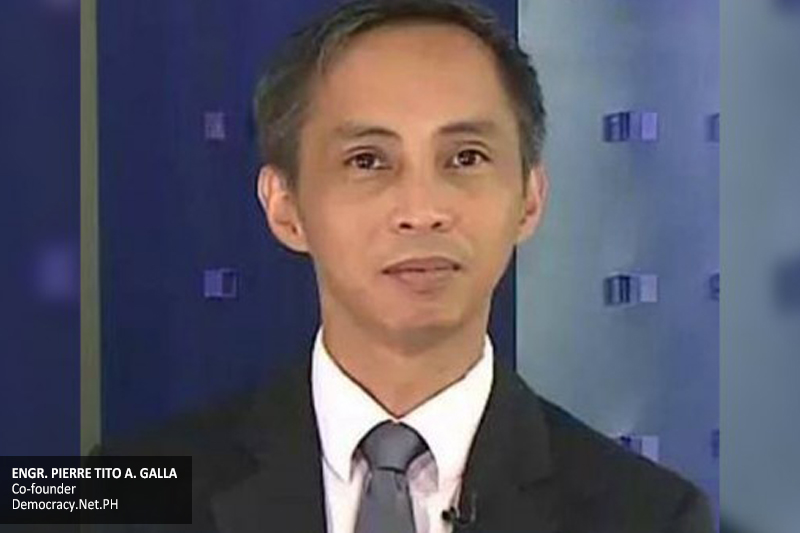
The primary role of government is to establish a policy environment that promotes 21st-century information and communications technology (ICT).
This was according to Engr. Pierre Tito A. Galla, co-founder of Democracy.Net.PH, during the webinar “Analyzing the Results of the 2019 National ICT Household Survey” recently organized by the Philippine Institute for Development Studies (PIDS).
Galla stressed that the Philippines needs the Open Access and Data Transmission Act, a proposed bill, to have coherent governance of data transmission infrastructure. According to the Department of Information and Communications Technology, the said bill aims “to lower barriers to market entry, fast-track and lower the cost of deploying broadband facilities, promote infrastructure sharing, and make spectrum management fairer and transparent”.
He also urged the government to pass the Better Internet Act as it “will provide minimum quality of service standards and metrics for internet connectivity services, not just speed”.
“We need metrics [like latency, packet loss, jitter, uptime, and reliability] apart from download speed and upload speed,” he noted.
Galla also emphasized the importance of the Satellite-Based Technologies for Internet Connectivity Act, which he said would open the ubiquitous availability of satellite technologies for internet connectivity. He explained that the passage of this bill would be useful for geographically isolated and disadvantaged areas, which make up 21 percent of the country, or roughly equivalent to 6.7 million people that do not have existing wired connectivity services.
Apart from legislation, Galla said that the government should adopt a “whole-of-nation” approach in dealing with ICT-related issues.
“We need to have something bigger like a shared passive [ICT] infrastructure policy that will govern all shared utility poles so we will no longer have exclusive poles and unfair pole rental pricing,” he pointed out.
Further, Galla also proposed to have a “shared policy on underground utility corridors, tunnels, and culverts and a more resilient infrastructure which the Department of Public Works and Highways should spearhead”.
He also emphasized that the governance of the Philippine ICT ecosystem should be anchored on rights, governance, development, and security.
“ICT is an ecosystem. It [is] not just about technology. It [is] also about the users and the way we use ICT. Issues that affect us daily, not just [in] the front end (i.e., phones and devices) but [also] in the back end (i.e., macroeconomics, the amount of money that our country earns), are issues [that the] Philippine ICT should address,” Galla said.
Finally, he urged the public to demand from national and local candidates in the upcoming elections their ICT platforms and proposed action plans for the country.
“We need ICT champions because what you do in the local government affects ICT use in your community. We need them in the national and local branches of government (i.e., legislative, executive, and judiciary) and constitutional commissions like the Civil Service so that everyone would be empowered to use ICT,” he concluded.
You may watch the webinar at https://fb.watch/9iOz52l4i5/ or https://youtu.be/j6q40hWF--o.
For more videos of PIDS events, go to https://www.pids.gov.ph/videos.
This was according to Engr. Pierre Tito A. Galla, co-founder of Democracy.Net.PH, during the webinar “Analyzing the Results of the 2019 National ICT Household Survey” recently organized by the Philippine Institute for Development Studies (PIDS).
Galla stressed that the Philippines needs the Open Access and Data Transmission Act, a proposed bill, to have coherent governance of data transmission infrastructure. According to the Department of Information and Communications Technology, the said bill aims “to lower barriers to market entry, fast-track and lower the cost of deploying broadband facilities, promote infrastructure sharing, and make spectrum management fairer and transparent”.
He also urged the government to pass the Better Internet Act as it “will provide minimum quality of service standards and metrics for internet connectivity services, not just speed”.
“We need metrics [like latency, packet loss, jitter, uptime, and reliability] apart from download speed and upload speed,” he noted.
Galla also emphasized the importance of the Satellite-Based Technologies for Internet Connectivity Act, which he said would open the ubiquitous availability of satellite technologies for internet connectivity. He explained that the passage of this bill would be useful for geographically isolated and disadvantaged areas, which make up 21 percent of the country, or roughly equivalent to 6.7 million people that do not have existing wired connectivity services.
Apart from legislation, Galla said that the government should adopt a “whole-of-nation” approach in dealing with ICT-related issues.
“We need to have something bigger like a shared passive [ICT] infrastructure policy that will govern all shared utility poles so we will no longer have exclusive poles and unfair pole rental pricing,” he pointed out.
Further, Galla also proposed to have a “shared policy on underground utility corridors, tunnels, and culverts and a more resilient infrastructure which the Department of Public Works and Highways should spearhead”.
He also emphasized that the governance of the Philippine ICT ecosystem should be anchored on rights, governance, development, and security.
“ICT is an ecosystem. It [is] not just about technology. It [is] also about the users and the way we use ICT. Issues that affect us daily, not just [in] the front end (i.e., phones and devices) but [also] in the back end (i.e., macroeconomics, the amount of money that our country earns), are issues [that the] Philippine ICT should address,” Galla said.
Finally, he urged the public to demand from national and local candidates in the upcoming elections their ICT platforms and proposed action plans for the country.
“We need ICT champions because what you do in the local government affects ICT use in your community. We need them in the national and local branches of government (i.e., legislative, executive, and judiciary) and constitutional commissions like the Civil Service so that everyone would be empowered to use ICT,” he concluded.
You may watch the webinar at https://fb.watch/9iOz52l4i5/ or https://youtu.be/j6q40hWF--o.
For more videos of PIDS events, go to https://www.pids.gov.ph/videos.

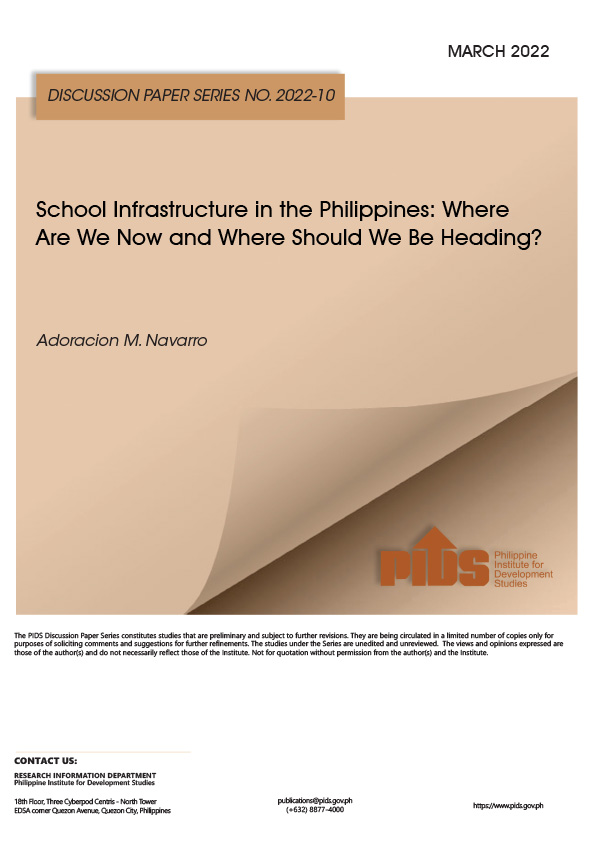
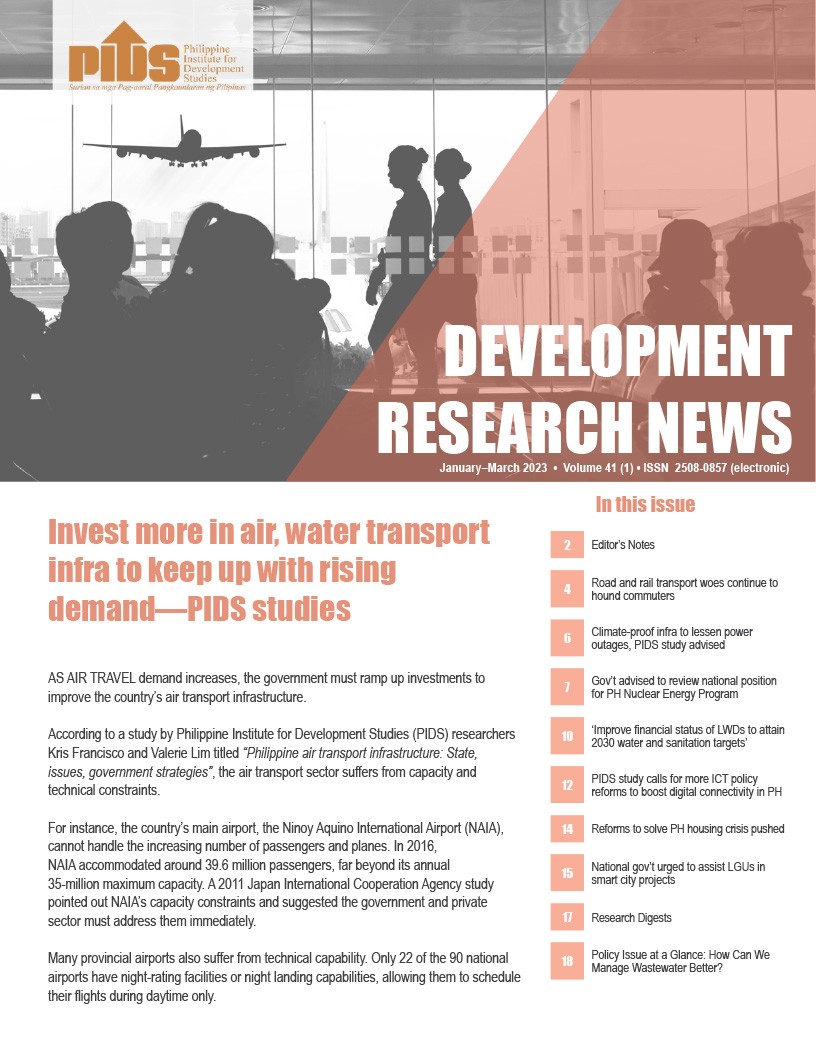
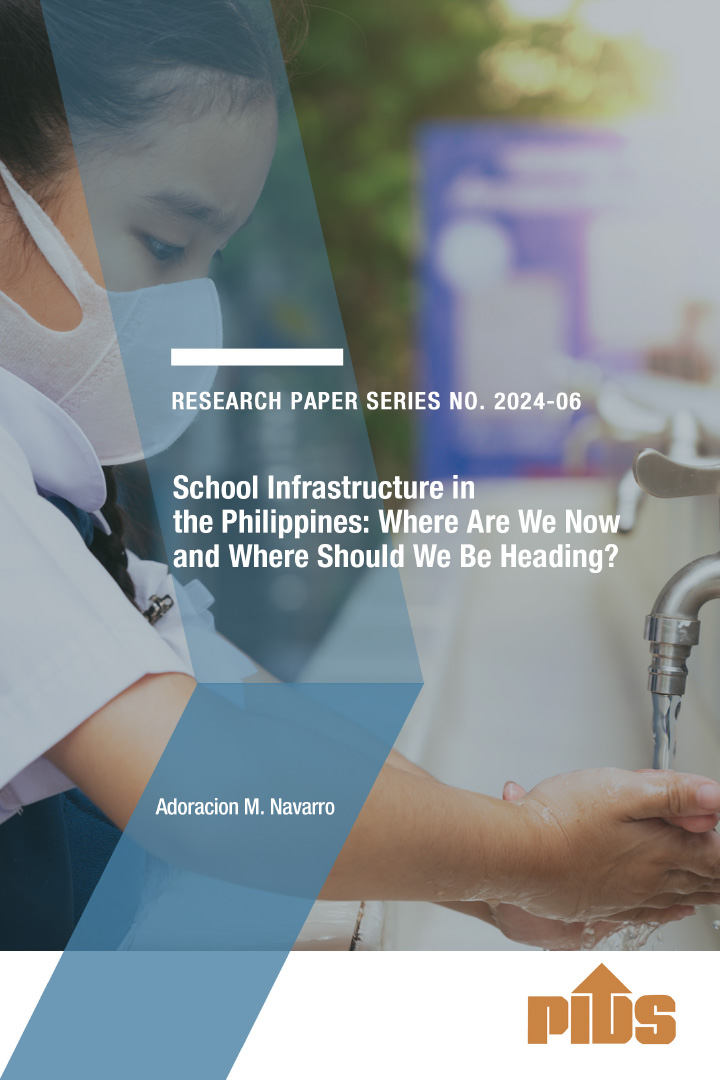

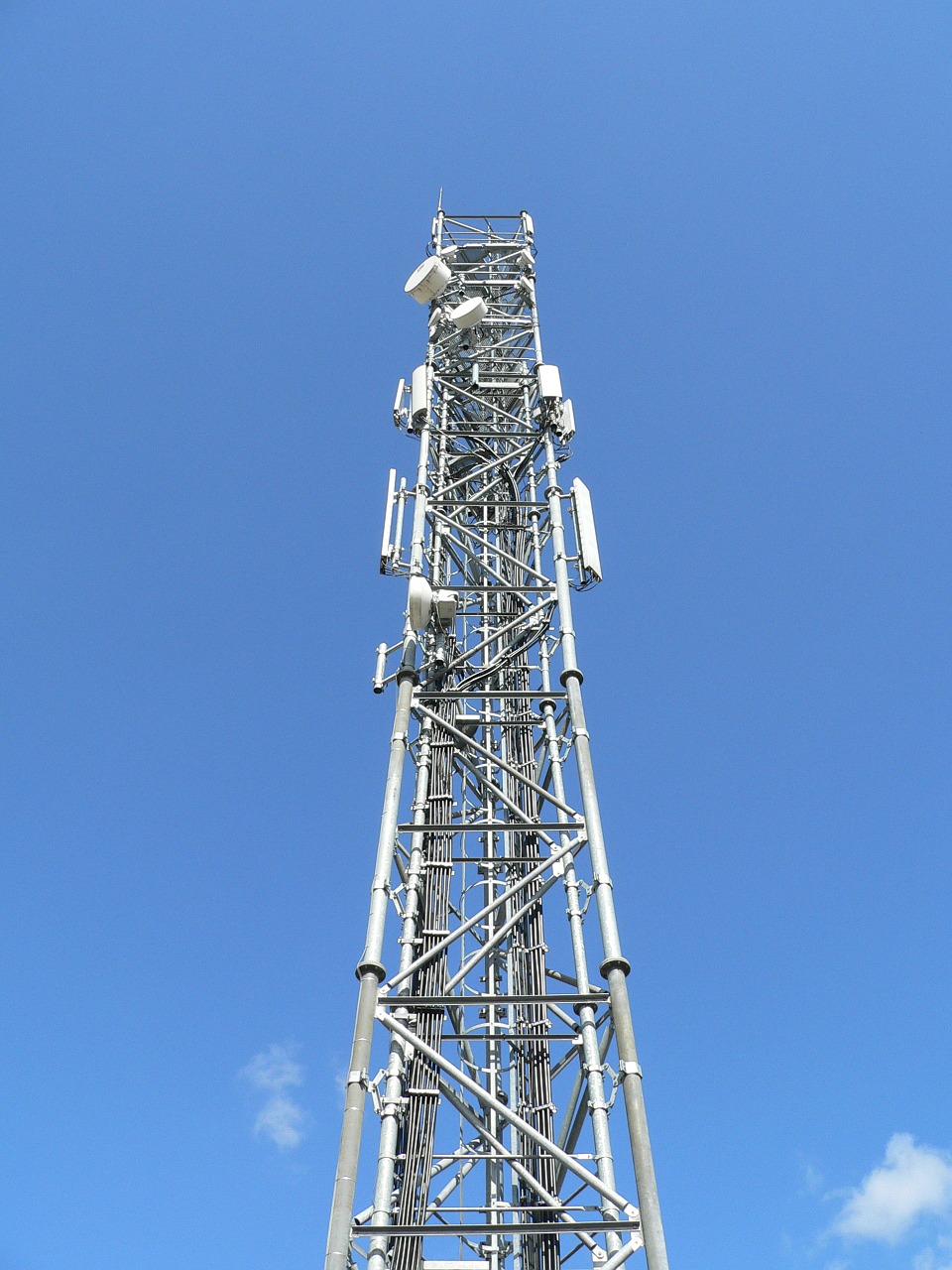
.jpg)



